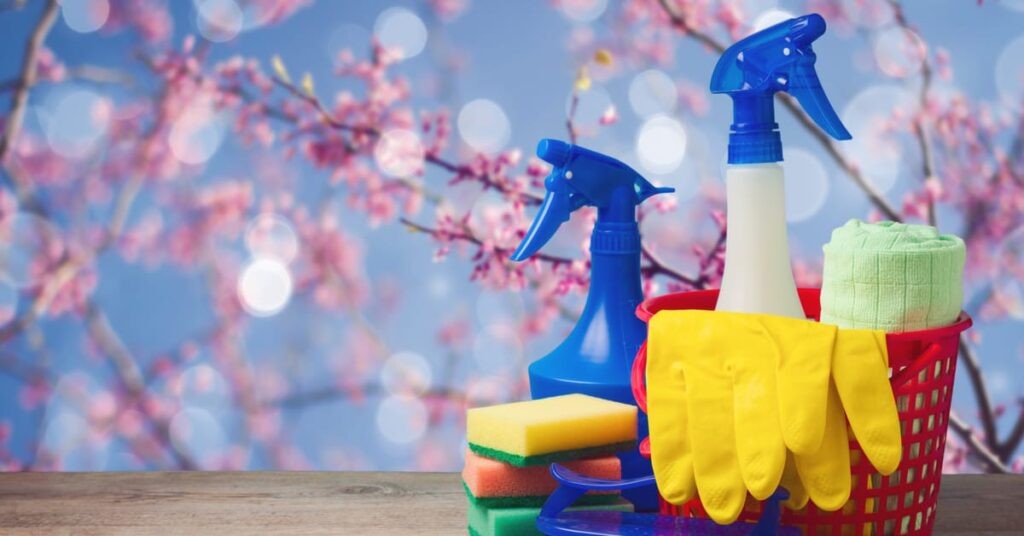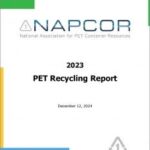Keeping a home sparkling clean is a common goal, especially for pet owners who navigate the daily messes our furry companions can sometimes create. As you prepare your cleaning routine, it’s essential to consider that many widely used cleaning products contain strong chemicals that can pose risks to your beloved pets. While you certainly don’t want your dog to drink from the toilet bowl, it’s even more crucial to ensure that your go-to household cleaners aren’t harmful if accidental exposure occurs.
Spring Cleaning Tips for Pet Owners: Keeping it Safe and Fresh
As spring approaches, many of us are motivated to refresh our living spaces. For pet owners, this is an ideal time to incorporate pet-safe cleaning practices. Here are some helpful tips to ensure a clean and safe environment for everyone:
- Deodorize with Baking Soda: For carpets, upholstery, and other soft surfaces, baking soda is your best friend. It naturally neutralizes odors.
- Dishwasher Disinfection: Pet bowls and durable plastic toys can be easily disinfected in the dishwasher, using a pet-safe detergent.
- Regularly Clean Pet Beds and Toys: Wash or replace your pet’s bedding, blankets, and soft toys frequently to minimize allergens and bacteria.
- Ventilation is Key: When cleaning, ensure good ventilation by opening windows and doors to dissipate any concentrated vapors from cleaning products.
- Bath Time First: Give your dog or cat a bath before you start cleaning the house. This reduces shedding and keeps your home cleaner for longer.
- Ingredient Awareness: Always read the labels of cleaning products, including popular brands like Pine-Sol, Clorox, Lysol, and Windex, to check for harmful ingredients before using them around your pets.
Related reading: 10 Ingenious Ways to Get Rid of Pet Hair
Pine-Sol: Understanding the Cleaner and Its Pet Safety Profile
Pine-Sol is a well-known all-purpose cleaner produced by Clorox, designed for disinfecting and cleaning hard, non-porous surfaces such as floors, counters, and sinks. However, when it comes to our furry family members, Pine-Sol is not considered safe for pets.
Originally formulated in the 1950s, Pine-Sol initially used pine oil as its primary component. While the formula has since evolved, and pine oil is no longer the main ingredient, many Pine-Sol products still contain some level of this essential oil.
The Toxic Components in Pine-Sol for Pets
The signature “fresh pine” scent of Pine-Sol comes from pine oil, which, unfortunately, is a primary ingredient that can be hazardous to pets. Besides pine oil, other ingredients found in Pine-Sol formulations that pose risks include benzoic acid, isopropyl alcohol, and sulfonic acids like phenol. Cats and dogs lack the necessary enzymes to properly process these chemicals, making them particularly vulnerable to their toxic effects.
Pine oil, along with other essential oils like tea tree, eucalyptus, and peppermint, can cause significant irritation and discomfort to your pet’s skin. If ingested, or even absorbed through the skin, pine oil becomes toxic and can lead to serious health issues. These include liver and kidney damage, and complications with your pet’s central nervous system and gastrointestinal (GI) tract. Notably, pine oil has been linked to seizures in dogs, which in severe cases can be fatal.
Other Household Cleaners with Chemicals Toxic to Pets
It’s not just Pine-Sol that pet owners need to be cautious about. Many common household cleaners contain substances that are harmful to animals. Here are some other chemicals to watch out for:
-
Ammonia: This chemical can cause burns to your pet’s skin and eyes upon contact. If ingested, ammonia can cause severe stomach issues and damage to the liver and kidneys. Mixing ammonia with bleach is extremely dangerous as it creates toxic gas, harmful to both humans and pets.
-
Chlorine: Often found in disinfectants and toilet bowl cleaners, chlorine can irritate a pet’s skin and eyes, especially for pets who swim in chlorinated pools. Inhalation or ingestion can lead to vomiting and dizziness. Concentrated chlorine can cause severe burns to the esophagus in both cats and dogs.
-
Glycol Ethers: These chemicals are prevalent in glass cleaners, carpet cleaners, and spot removers. If ingested or absorbed, glycol ethers can cause kidney and lung damage in humans, and similar serious health issues, including reproductive and developmental problems, in pets.
Is Pine-Sol Safe to Use If Pets Are Not Present?
Even though modern Pine-Sol formulas contain significantly less pine oil than older versions, it’s still present along with other dangerous chemicals like isopropyl alcohol and phenol. While a dried floor cleaned with Pine-Sol might seem safe, there’s still a risk. Pets can accidentally ingest the cleaner by licking their paws after walking on treated surfaces. This secondary exposure can still lead to toxic effects.
What to Do If Your Pet Ingests Pine-Sol
If you suspect your pet has ingested Pine-Sol, it’s crucial to recognize the signs of a toxic reaction. Symptoms can include:
- Severe vomiting
- Abdominal pain
- Disorientation
- Weakness
- Ataxia – appearing “drunk” or uncoordinated, indicating central nervous system issues.
If you observe any of these symptoms or suspect Pine-Sol ingestion, contact your veterinarian immediately. Treatment typically involves intravenous (IV) fluids to help flush out the toxins and activated charcoal to absorb the chemicals, aiding their passage through the liver and kidneys.
Pet-Safe Alternatives for Floor Cleaning
Choosing a pet-safe floor cleaner is a simple yet significant change for households with pets, especially since cats and dogs spend a lot of time on the floor. White vinegar is a fantastic natural disinfectant that effectively cleans floors without leaving harmful chemical residues.
Both distilled white vinegar and apple cider vinegar are safe, non-toxic cleaning solutions. They are even edible! While the smell of vinegar might be noticeable initially, it dissipates almost entirely once the surface is dry.
For a pet-safe floor cleaner, mix half a cup of white vinegar with one gallon of water for mopping. Ensure you wring out the mop thoroughly, especially when cleaning hardwood floors to prevent excess moisture.
Safe and Natural Odor Removers
Baking soda is an excellent and completely safe alternative to harsh chemical odor removers for upholstery, carpets, and cushions. It’s non-toxic and safe for all family members, including pets—just avoid ingesting large quantities.
To use baking soda as an odor remover, lightly sprinkle it over the affected area. For particularly strong odors like urine or feces, don’t hesitate to use a more generous amount. Let the baking soda sit for at least 15 minutes before vacuuming. The longer it sits, the more effectively it will absorb and neutralize odors.
Choosing Pet-Safe Cleaning Products: A Loving Choice
Selecting household cleaners with care is essential for ensuring your pets remain safe, healthy, and happy. While many cleaning products are safe when used according to directions, the inherent curiosity of pets means there’s always a risk if these products are not properly secured. By opting for pet-safe cleaning solutions and being mindful of ingredients, you can maintain a clean home without compromising the well-being of your furry friends.

